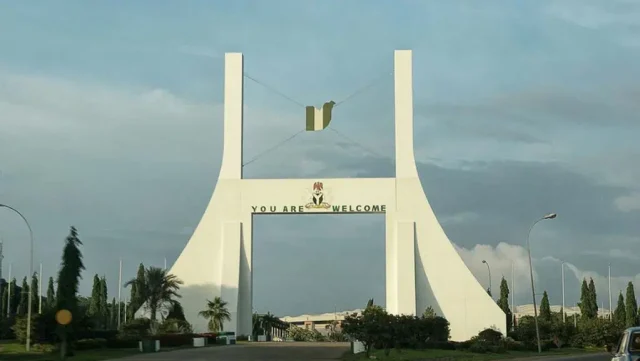Stakeholders have decried the poor sanitary situation in Mpape community in Bwari Area Council of the Federal Capital Territory (FCT) warning that it has implications not only for the community but for the Abuja city centre itself.
More than 30 per cent of the residents of the community lack access to toilet facility.
Mpape which is one of largest slum settlement in the nation’s seat of power is just about 10 minutes drive from the city centre .
However, the community lacks access roads, portable water and other basic amenities.
Speaking at a one-day Stakeholders Validation Workshop with the theme:Mpape Sanitation Baseline Assessment Report and CWIS Performance Improvement Plan, a Development Expert and the CEO Mangrove and Partners Ltd, Mr Timeyin Uwajamomere bemoaned the stark infrastructural gaps between the Abuja city centre and most communities surrounding it, stressing that situation is unbefitting for a city that prides itself as the capital of the most populous black nation.
He stated that findings showed that over 30% of the people living in the community do not have toilet facilities at all and therefore use the bush adding that there is no system for evacuation of wastes, which when they are filled, spills over into the gutters.
Uwajamomere lamented that open defecation is a big issue in Mpape and the entire Abuja now adding that there is no clearly defined strategy for conducting the Clean Nigeria campaign in the FCT , which is a federal government programme that has been on for six years because the FCT administration, does not have a clear budget for this.
“This is just ten minutes away from Abuja city centre. In Mpape, people live in squalor, just close to Ministers’ Hill that is a very posh area where most of our ministers used to live, the staff of the ministers, the staff of private sector operators and business people come from this community.So whatever diseases they contract, they bring to you in your posh environment. So it’s in our interest to take care of that situation”.
“We are talking of a place where there is no water service. The Water Corporation does not serve there. The Rural Water Supply and Sanitation Agency does not provide the water.
The Satellite Town Development Department does not have a plan for them. So there is no city plan or regional plan or area plan or even a district plan that captures Mpape.
He urged the FCTA to revisit the regional master plan for Abuja which specifies certain things to be built in certain phases of time and a process by which the administration will connect satellite towns to the centre and fix the haps.
He said, “We are now in the fifth phase of the development of Abuja. We require that some of those gaps should be fixed even before the full expansion of road networks and all that. For example, as part of this study, we took some of the executive to Wupa, Wupa is a waste water treatment plant. We found that Wupa has six treatment basins and they are only using two. The only reason they are using two is that the parts of Abuja that are supposed to be connected to the network are not connected. Some of them have the network already but their connection to the Wupa station has not been done. Those gaps must be filled quickly. Because we have invested in that facility but we are only using about 30% of its capacity*.
Emphasising the need to set up a system for addressing sanitation in satellite towns, Uwajamomere observed that between 60 and 70% of the residents are using onsite sanitation, and advocated for a system to manage onsite sanitation, take away the waste, to treat it and turn it into valuable products.
“We know that there are people working in that area that are using their hands to pack the shit. We must train them.We must encourage them to use personal protection equipment. We must set up a unit of government that is responsible for helping them to know what to do right. A unit that will register them, that will regulate them and that will give them the standard of work”.
“It’s good that we have good roads. It’s good that we have a beautiful city. But 60% of our community lives in this kind of community situation.People will come to town to work and they go back home to live in squatter and you will expect them to behave nicely when they get to the city. That why we find that people urinate and defecate in the gardens in Abuja. Because they are not used to that experience.
Earlier, the District Head of Mpape, Chief Musa Pada, lamented that despite being very close to the city centre, Mpape community which has over 2 million population faces serious infrastructure challenges including poor access to clean water, poor healthcare services
“He said, “We don’t have water. We rely on private boreholes, and when there’s no electricity, water trucks cost N2,000. The only health facility in the community is small health centre adding that the community needs properly equipped general hospital to take care of its teeming population.The roads are in poor condition, there are no public toilets in our markets, and landlords construct houses without providing toilet facilities. There is no enforcement of building regulations,”.
The District Head noted that the community has written several letters had been sent to the Chairman of Bwari Area Council and the Federal Capital Territory (FCT) Administration, without any action taken to ameliorate the plight of the residents.







